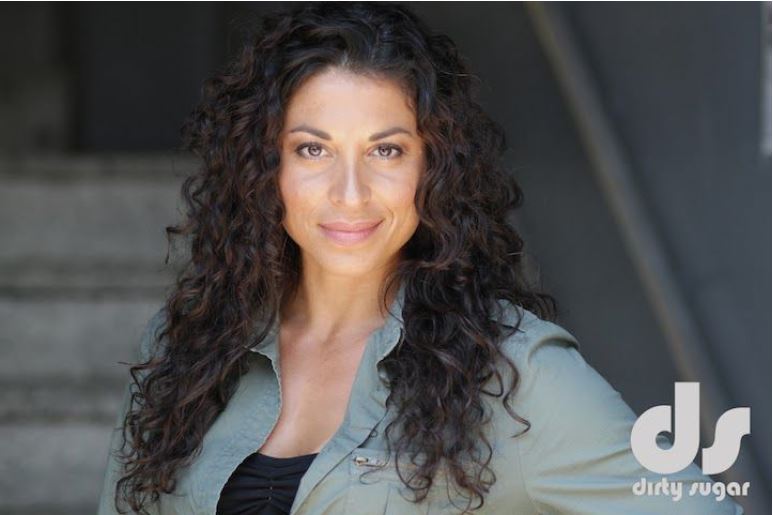Thank You 10 Featuring: Stephanie Klemons
Thank You, 10 is an interview series brought to you by Audition Cat, an upcoming app with career management tools for the professional auditioning performer. Each article interviews an industry professional with a different experience and opinion about what the future of auditioning looks like. Through these conversations, we hope an image will appear about what’s next for the industry, and what it aspires to be. Have someone you’d like to be considered for an interview? Reach out to us Facebook, Twitter, or Instagram.
Stephanie Klemons

Pronouns: She/Hers
Occupation: Choreographer & Performer
Website: www.StephanieKlemons.com
Credits: Associate Choreographer & Original Cast Of Hamilton Original Cast of In The Heights Choreographer of Viral “Time of your Life” Super Bowl Commercial featuring Eli Manning & Odell Beckham Jr
Getting to Know You
Who are you? What’s your artistic background / what started your journey into the arts?
I’ve loved dance since before I can remember. I don’t try and superimpose some adult justifications; I have always just been passionate about dance. I began as a dancer after graduating college with two degrees : Genetics/MicroBio & Modern Dance. I knew nothing about making it and just did what I knew best: I took class. In class I met my first agents, booked my first commercial and met some folx who would become my second family. A steady trajectory from that which I knew, dance, to that which I wanted followed. I made my Broadway debut in In The Heights three years after moving to NYC.
When did you set out on your current career path?
My sophomore year in college. I was working as a camp counselor over the summer on break. I had signed up to be a dance counselor and when I arrived at camp they made me aware that they overbooked dance and came up with a new role for me, “Resident Choreographer of the Summer Musicals”. I choreographed 4 musicals that summer including Godspell & A Funny Thing… I had never done a musical before that summer even though it was my dream to be on Broadway since before I can remember. I was 19.
What is your “mission statement” as an arts professional? What drives you to continue in this industry?
I am teaching a course at Rutgers and this was the first thing I made my kids do. I have been in love with dance since before I can remember. The ability to speak with bodies allows me to connect with the world around me and create catharsis for humans and my goal is to continue to do this in a way that is pioneering and thought-provoking, garnering just enough attention to have a platform to highlight the importance of art in the lives of terminally ill children. www.katiesartproject.org
Within your artistic profession, what other industry roles do you work with most closely?
Directors, Stage Managers, Music Directors, performers
What do you wish was more widely understood about your profession?
That choreographers own the intellectual property and associates pave the road for that river to flow.
Auditioning and You
In your experience, what is the most common pitfall that actors make with auditions?
Trying too hard to appear friendly. Not being prepared, no amount of talent can get you out of that mistake.
Let’s talk about self tapes! Self tapes have become more and more common for auditioning actors, even more so during the pandemic. What do you like about self tapes? What do you dislike about them?
That I don’t have to travel into Manhattan 1000’s a week. I live on Long Island and have for 10 years.
Many NYC performers we talk to feel you NEED to live in extremely close proximity to midtown. What has made you choose Long Island and have you ever felt living there affected your career negatively?
I get that. It would make my life easier and my quality of living FOR ME worse. I choose to create longevity by living by a beach, another dream of mine. So i can’t always get drinks after work; my liver thanks me. I miss being able to pop into the MET or eat at 1 of a zillion cafes in spring.
As self tapes become more and more prevalent in the industry, for your profession, what are the main differences between in-person and virtual auditions? What advice do you have for actors who have less experience with virtual auditions?
I’m new to the self-tape world myself. My advice follow newsletters like “Mel Mack Acting” and “one-on-one” to get helpful, up-to-the-minute tips.
If there was one piece of advice you’d give to any actor right before an audition or recording a self tape, what would it be?
Get your lighting right.
How have you set up your lighting for self tapes?
A ring light really sets apart those that are “self-taping” for a living and the rest. Also if you’re like me and you have no empty walls, get one of those pop up backgrounds to make the lighting worth it! Can get that all for under $30 on Amazon.
How do you expand your “network”? When you interact with a performer for the first time, what inspires you, and what are you looking for in this initial interaction/audition to convince you to bring them back?
Authenticity, authenticity, with a side of authenticity.
Looking to the Future
What excites you about the future of the arts and auditioning in particular? What are your concerns?
The pandemic has cracked open the possibilities for creatives of tomorrow. I’ve written up proposals for preposterous ideas that would have never come up prior to our expansion into the virtual space. I can’t wait to see what the kids who grow up in This do.
Post-Pandemic, how prevalent do you think virtual auditions will be / what role will they play in the day-to-day casting process? Are there aspects of virtual auditions you’ve found that you prefer?
There is NO SUBSTITUTE for in-person auditions. But maybe a first round weed out. I don’t prefer them other than a reduced commute.
Self Tape setups are a financial and technical obstacle for many in our industry. For those who either can’t afford or don’t feel confident in the technical knowledge to use self-tape equipment, what advice can you offer to give them the best audition?
The self-tape equipment you need is available on Amazon for $40 or less. If you cannot manage to find $40, find $20 and just buy the light, skip the mic and pop-up back-drop. Or ask a friend or family member for a $40 loan. Believe in yourself, and invest in yourself. If you’re really unable to find $40, shift your focus on getting pandemic specific work and build up your funds while the industry is relatively quiet.
If you could rebuild the audition process however you’d want, what would it look like?
We would throw out all the exclusive language we use. Dance auditions would welcome trans and non-binary performers in their language and execution. Using words like “exotic, and ethnic” would be replaced with what the creatives actually mean. The teams that cast would be representative of the shows they are casting.
The arts industry has inherent barriers to entry including but not exclusively race, socioeconomic status/background, gender, disability, and more. How do you think the industry should evolve to make it a more accessible, equitable, and intersectional space
for all? Especially how can we apply this to the audition process?
It starts with opportunities being available to be cast in which starts with creatives and management who looks like the Broadway of today. The Hamiltons & new Oklahomas and Once on This Islands, (I am not suggesting casting hire live-stock) would be led and built and would benefit the members of the communities which they are portraying.



Leave a Reply
Want to join the discussion?Feel free to contribute!